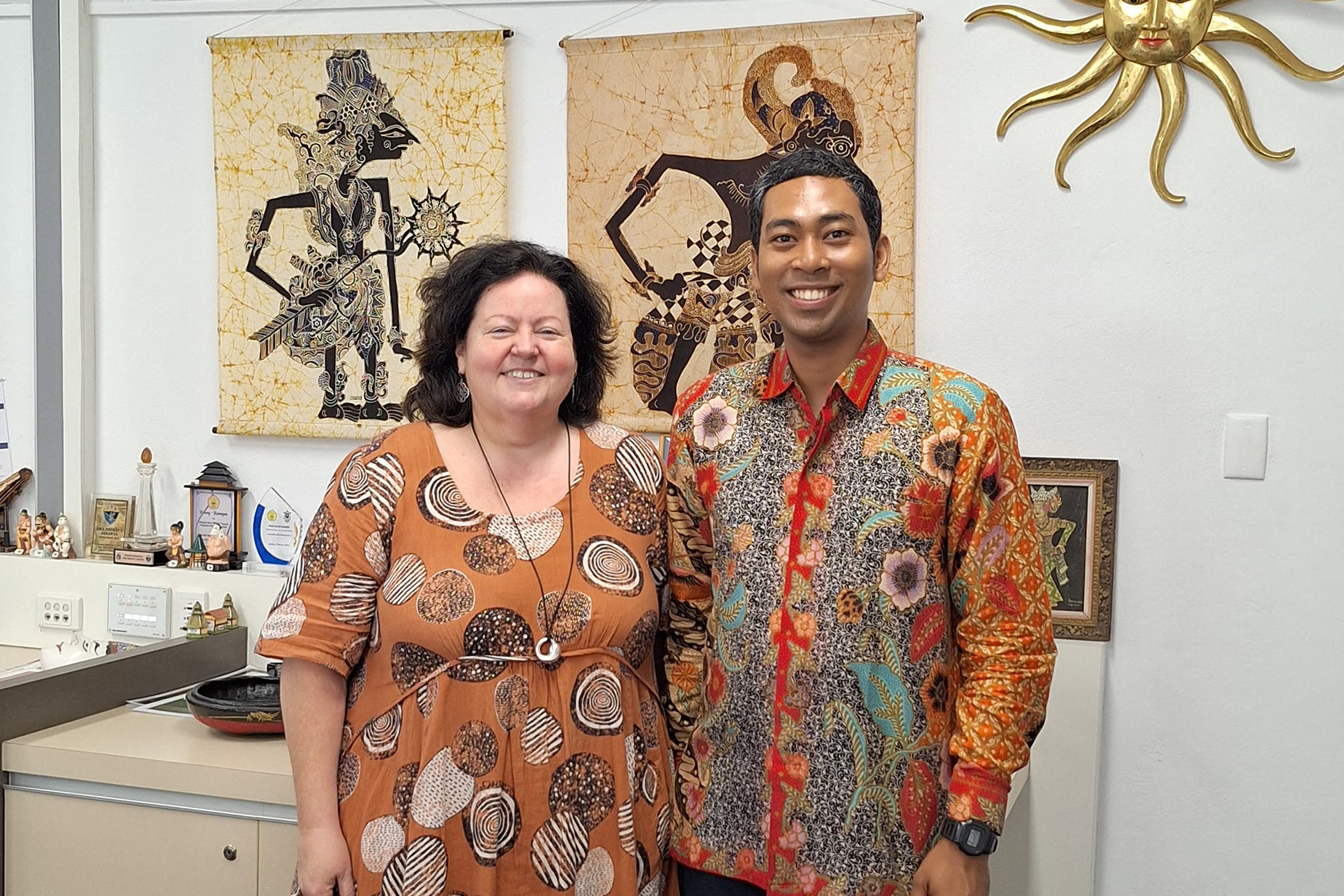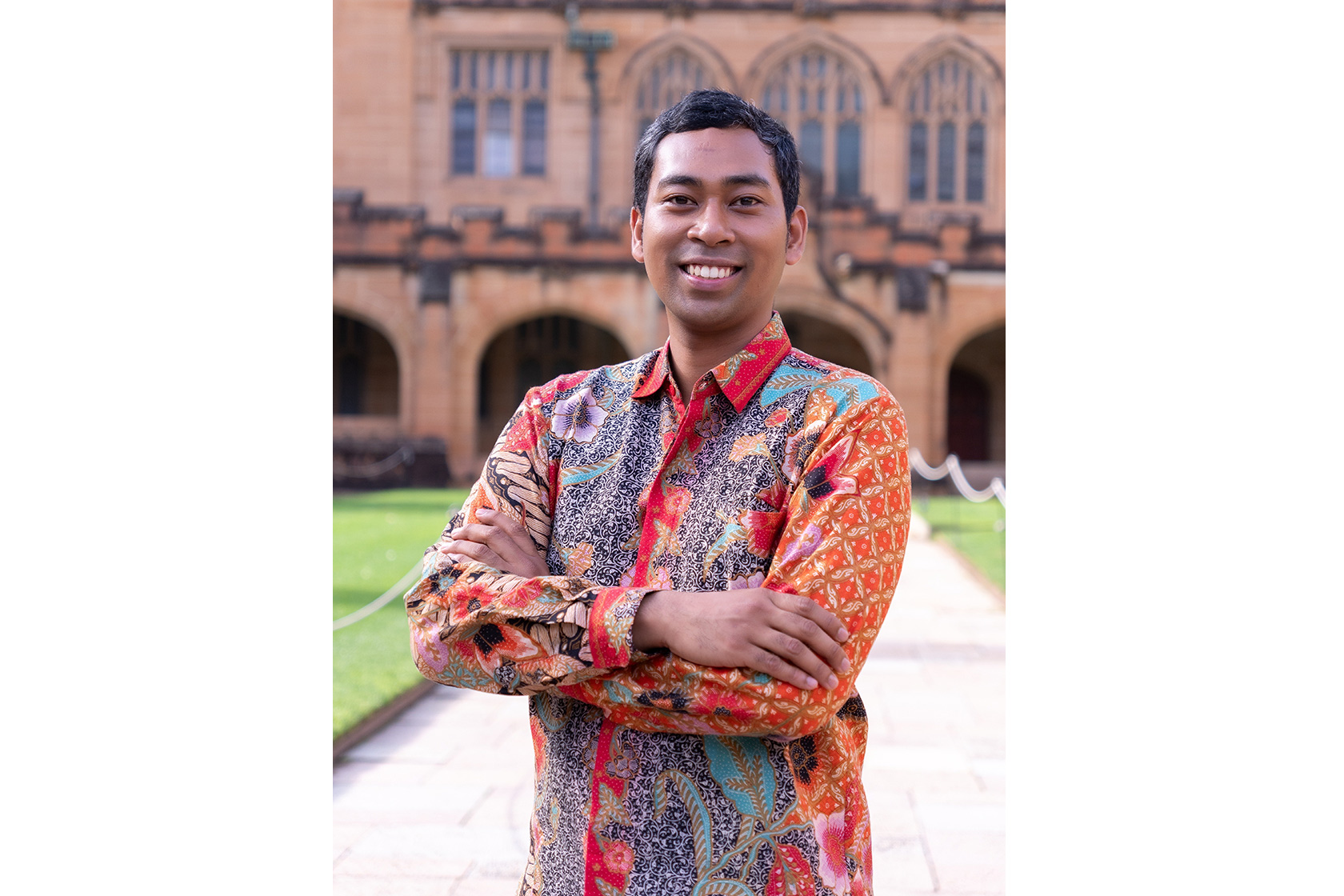While studying in Australia, Aditya Parama became a tutor to help students develop their skills in Bahasa Indonesia. Unexpectedly, it turned out to be an opportunity for him to grow.
Despite a hectic schedule for his Masters in Commerce at the University of Sydney, Parama found time to visit Monte Sant' Angelo Mercy College every Thursday for six months to teach Bahasa Indonesia to students in years 7 to 12.
"Everything fit perfectly. On Thursdays, I didn't have any lectures at all, and the Indonesian language lessons in that school were also scheduled on Thursdays," said Parama, who explained that the distance from his place to the high school in North Sydney was quite far.
Parama was part of the Indonesian Language Learning Ambassador (ILLA) program, which provides Australia Awards scholars from Indonesia a chance to directly engage with Australian schools or universities.
The first iteration of the ILLA program ran between 2017 and 2019. It relaunched after the pandemic in early 2024. Parama was among 20 scholars selected in six areas. Before the program, Parama was a Bahasa Indonesia bagi Penutur Asing (BIPA) assistant during an international summer program in Bandung. He also had experience teaching Bahasa Indonesia and culture to students while studying at the National Taiwan Normal University in 2021-2022.
"I went to Taiwan to learn the language. But when I was there, I also became a tutor for Bahasa Indonesia. This experience and my time in ILLA refined my communication skills and allowed me to gain an understanding of effective language instruction," said Parama.
Learning Language Through Culture
One of the teachers Parama worked with in Sydney was Ruth Benfield, who has been teaching Bahasa Indonesia for around 30 years.
She believes that teaching Bahasa Indonesia is crucial, given the proximity of Indonesia and Australia and the extensive diplomatic collaboration between the two countries. Unfortunately, many schools in her area tend to be more 'Euro-focused' when it comes to studying languages.
She explained that for high school students, the ILLA program offered an excellent opportunity to get to know an Indonesian person. The program allowed students to practise their speaking skills and ask questions about Indonesia and the ILLA Ambassadors as individuals.

"One highlight was when Mas Parama guided the class through an Upacara Bendera, a flag-raising ceremony, wearing Indonesia's formal ceremonial uniform with pride. His presence gave students a deeper appreciation for the values and traditions of the nation. Mas Parama led the students through the various elements of the flag-raising ceremony and the national songs, explaining the importance and relevance of this weekly gathering in every school across the archipelago," Benfield said.
Benfield remembered how Parama also spent time with the year 7 students, who are usually 12 or 13 years old. He introduced the class to the art of wayang kulit. "He shared stories about this traditional Javanese performance, explaining its cultural significance and showing how the puppets are used to tell epic tales. Students were captivated by his demonstration and had the chance to try their hand at manipulating the puppets, bringing the characters to life while practising their vocabulary."
This cultural introduction is a component of the educational method, along with learning grammar and linguistics, Parama explained. "I thought teaching Bahasa Indonesia meant grammar and vocabulary. It turns out they already know enough. So, I was more of a friend sharing knowledge about Indonesia in Bahasa Indonesia," said Parama, who obtained his bachelor's degree from Bandung Institute of Technology.
Bahasa Indonesia students at Monte Sant' Angelo Mercy College have three to six face-to-face lessons each week, depending on the year level. Classes are generally small, especially senior classes, where sometimes there are only two students. A wide range of teaching methodologies are used in the classroom, enhancing learning experiences in the macro skills of listening, speaking, reading and writing.
In senior classes, the school employs another native Indonesian speaker to work one-on-one with the senior girls in preparation for their examinations. In the junior classes, the school focuses on project-based learning to engage the students in real-world learning scenarios.
Although the program has concluded, Parama still helps students sharpen their speaking skills before examinations. "I'm also happy because this school's students have exceptional Indonesian language skills. For example, when asked to give a speech on the theme of relations, what was discussed was diplomatic relations between countries," he explained.
A Stepping Stone to Lecturing
Being among the youth at Monte Sant' Angelo Mercy College during the ILLA program helped Parama learn to be more adaptable in his communication style. After he completes his masters program next year, he is considering lecturing in commerce and data analytics.
"My dream is to become a lecturer after this. Teaching at this school was very helpful."
Parama had decided to study in Australia because of its reputation in higher education, and the major offered in data analytics. The new connections and experiences he gained through the ILLA program turned out to be equally valuable experiences.
He encouraged other Australia Awards scholars from Indonesia to join the next batch without hesitation. He believes the program will strengthen the diplomatic relations between Indonesia and Australia.
Benfield agreed. "I hope that this program could go some way toward bolstering greater Asian literacy and cultural understanding across schools where Asian language study runs second to the study of European languages,” she said. “I hope that both our governments continue to support this program and increase the number of Ambassadors in the future."


 Aditya Parama: An Ambassador for Bahasa Indonesia in Australian Classrooms
Aditya Parama: An Ambassador for Bahasa Indonesia in Australian Classrooms
